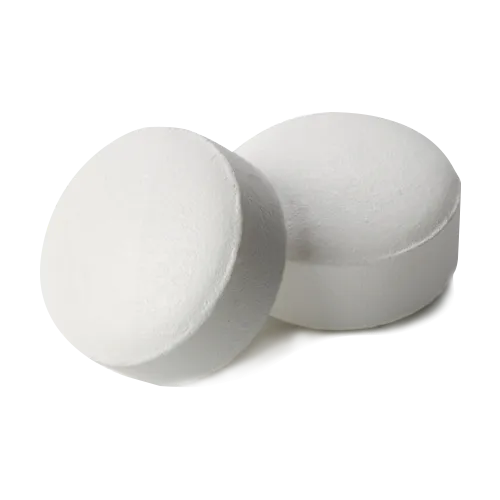Overview
Januvia, generically known as sitagliptin, is an oral antidiabetic medication used to manage type 2 diabetes mellitus. Developed by Merck & Co., it was approved by the FDA in October 2006. Januvia inhibits dipeptidyl peptidase-4 (DPP-4), increasing incretin hormone levels to enhance insulin release and reduce glucagon production, particularly post-meals. It supports patients unable to control blood sugar through diet and exercise alone and can be used as monotherapy or with other antidiabetic drugs, offering a novel approach to diabetes care.
History of Development and Approval
Introduced by Merck & Co., Januvia received FDA approval in 2006 as a groundbreaking DPP-4 inhibitor for type 2 diabetes. Its development, backed by extensive clinical trials, established its efficacy and safety, making it a key option in diabetes management.
Key Benefits
- Effective Glycemic Control: Significantly lowers HbA1c for long-term glucose management.
- Convenient Dosing: Once-daily oral administration simplifies treatment.
- Low Hypoglycemia Risk: Safer for patients prone to low blood sugar.
- Cardiovascular Potential: May offer heart health benefits with other diabetes drugs.
- Weight Neutral: Does not promote weight gain, aiding weight management.
Unique Properties
Januvia’s targeted DPP-4 inhibition boosts incretin hormones, enhancing insulin secretion and suppressing glucagon in a glucose-dependent manner. This reduces hypoglycemia risk and supports flexible combination therapy for personalized diabetes care.
Comparison with Similar Medications
Compared to other antidiabetic drugs, Januvia offers:
- Incretin-Based Action: Unique mechanism enhances insulin response without weight gain.
- Low Hypoglycemia Risk: Safer than sulfonylureas for many patients.
- Combination Flexibility: Works well with metformin, insulin, or other agents.
Safety and Tolerability
Januvia is generally well-tolerated, with mild side effects like upper respiratory infections, headaches, or nasopharyngitis. Rare serious effects include pancreatitis or severe allergic reactions. Patients with renal impairment need dose adjustments. Regular monitoring ensures safe use.
Indications for Use
Januvia is indicated for:
- Type 2 Diabetes Mellitus: Improves glycemic control in adults, alone or with other antidiabetic drugs.
Dosage and Administration
Adults: 100 mg once daily; renal impairment: 50 mg (moderate) or 25 mg (severe).
Children: Not approved; safety unestablished.
Elderly: Standard dosing, monitor renal function.
Timing: Any time of day, with/without food.
Notes: Adjust dose in renal impairment; consistent timing aids adherence.
Mechanism of Action
Sitagliptin inhibits DPP-4, increasing active incretin levels (GLP-1, GIP), which boosts insulin release and reduces glucagon in a glucose-dependent manner, improving blood sugar control.
Composition
Active Ingredient: Sitagliptin phosphate, drives glycemic control.
Inactive Ingredients: Microcrystalline cellulose, lactose, magnesium stearate for tablet stability.
Side Effects
Common: Headache, nasopharyngitis, upper respiratory infections.
Rare: Joint pain, rash.
Serious: Pancreatitis, severe allergic reactions, kidney issues require urgent care.
Prevention of Side Effects
Take as prescribed, monitor for symptoms like abdominal pain, use reminders (alarms, apps) for adherence. Report issues promptly.
Contraindications
Avoid in hypersensitivity to sitagliptin or type 1 diabetes/ketoacidosis.
Warnings and Precautions
Monitor for pancreatitis, renal function, or hypersensitivity. Caution in heart failure or kidney issues.
Drug Interactions
Increased hypoglycemia risk with sulfonylureas or insulin; some drugs affect renal clearance. Disclose all medications.
Overdose
Symptoms: rare, may include hypoglycemia. Seek emergency care; administer glucose if needed.
Pharmacokinetics
Absorption: Well-absorbed, peak 1–4 hours.
Distribution: Moderate, widely distributed.
Metabolism: Minimal liver metabolism.
Elimination: Urine (87%); half-life ~12.4 hours.
Dosage Forms
Tablets (25, 50, 100 mg) for once-daily oral use.
Pregnancy and Breastfeeding
Use if benefits outweigh risks (Category B); unknown milk excretion, consult provider.
Storage
Store at 20°C–25°C (68°F–77°F), dry, light-protected, away from children. Dispose expired properly.
Clinical Evidence
Trials show Januvia significantly reduces HbA1c, improves glycemic control alone or in combination, with low hypoglycemia risk.
Conclusion
Januvia is an effective, convenient, and safe option for type 2 diabetes management, with unique incretin-based action. Adhere to dosing, monitor effects, and maintain lifestyle changes for optimal results.




